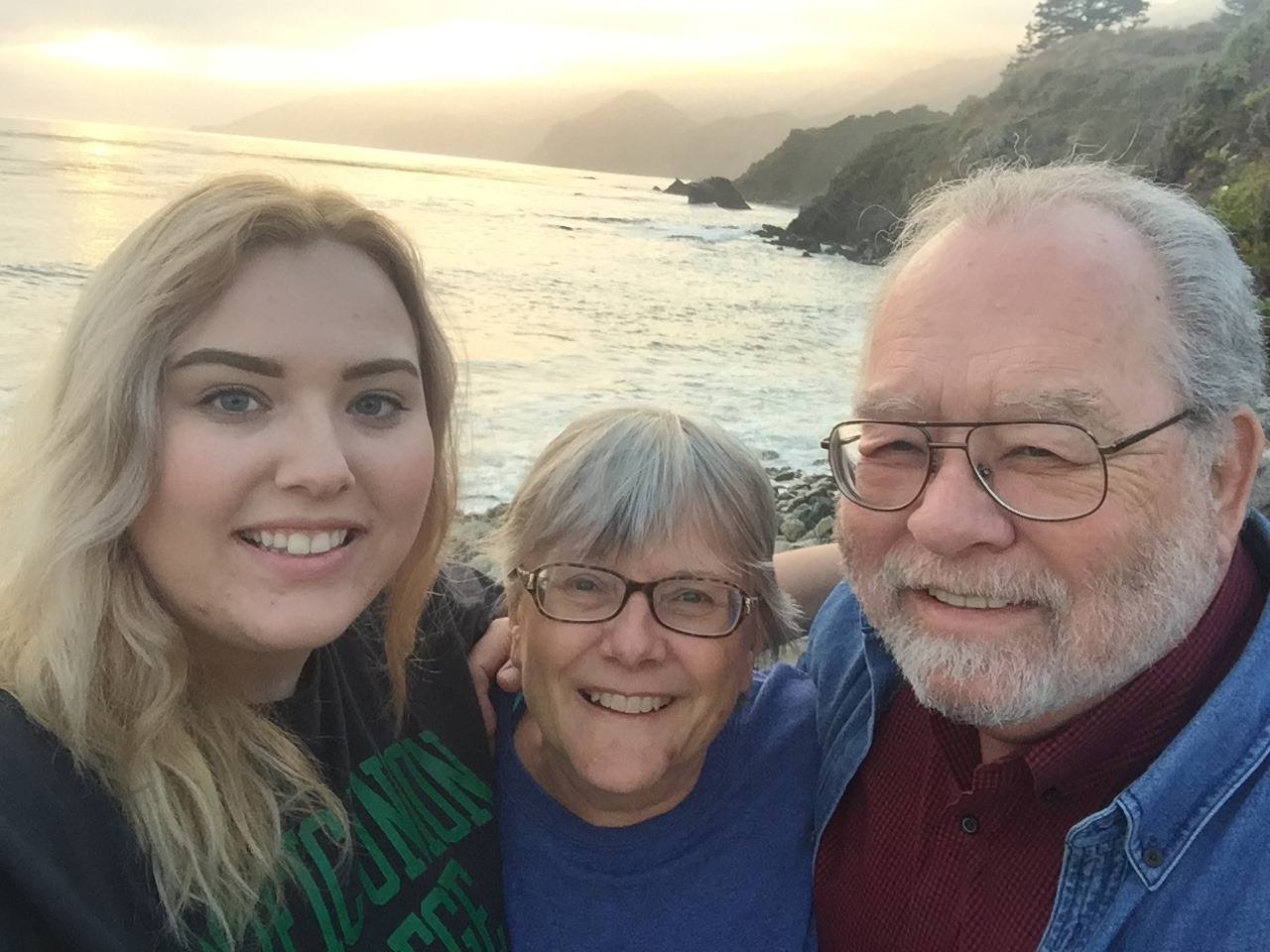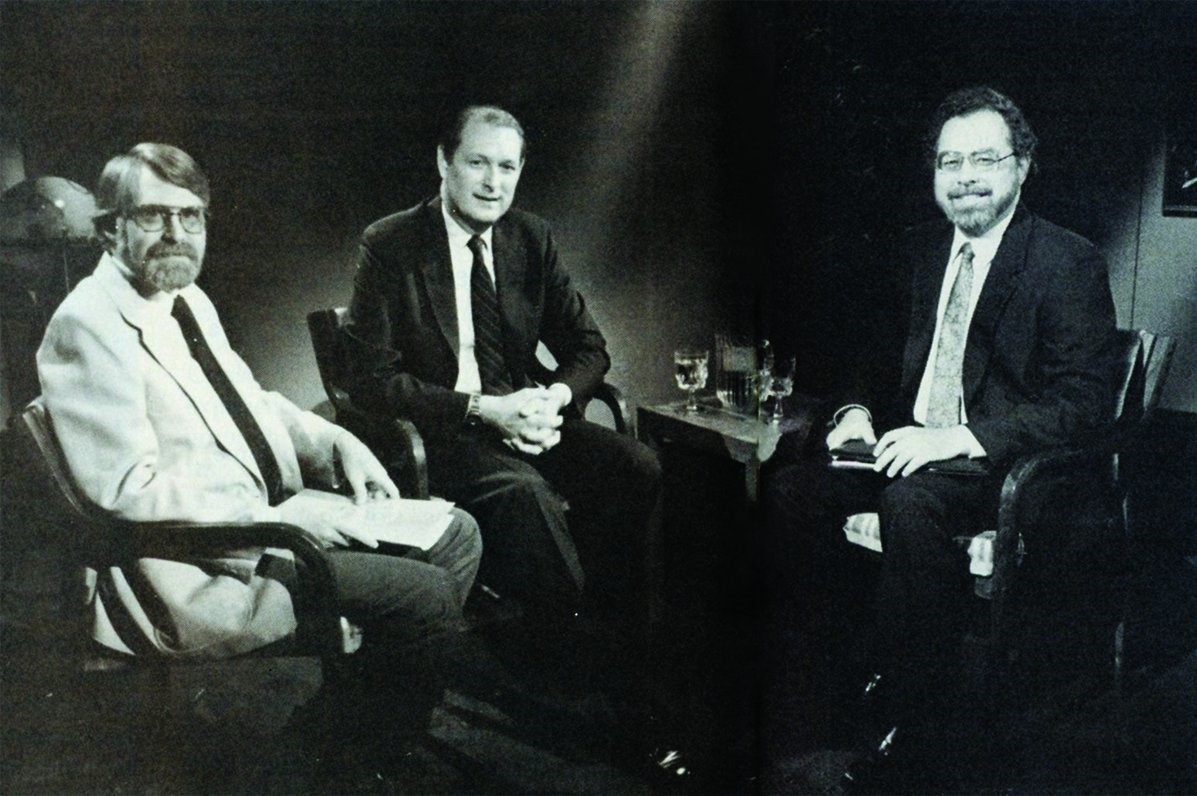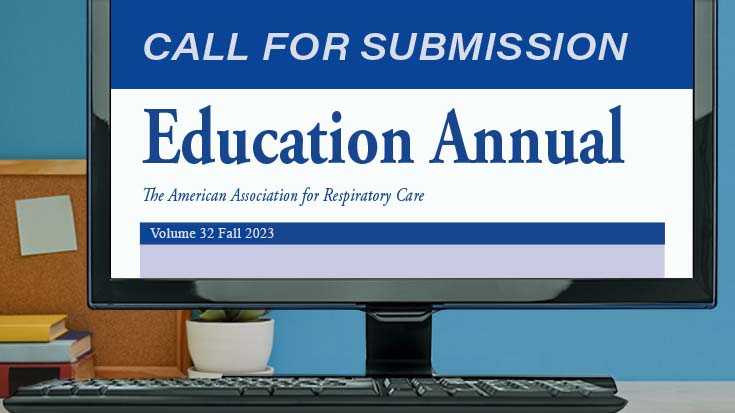
Long-Time AARC Member Charles “Bud” Spearman Passes Away
The profession lost another leading member in August, with the passing of Charles “Bud” Spearman, MSEd, RRT, FAARC. Spearman, who was 74, was living in Loma Linda, CA, where he had retired from his position as a clinical assistant professor in the department of cardiopulmonary sciences at Loma Linda University in 2014.

Onward and upward
Bud Spearman began his career in respiratory care as an “on-the-job” trainee at Tucson General Hospital in Tucson, AZ, in 1968. Eighteen months later, he enrolled in the RT program at Tucson Medical Center, which soon affiliated with Pima Community College, graduating in 1971.
After earning his RRT in 1972 — he was Registry Number 1646 — he decided he would need a bachelor’s degree to further his career. He opted for what was then one of the few bachelor’s degree programs in respiratory care in the nation at Loma Linda University.
The move would shape the rest of his career.
After moving back to Tucson for a couple of years following graduation, he ultimately landed at Loma Linda, where he worked as both a clinical specialist and an educator in the respiratory care program.
He received his master’s degree in health professions education from the University of Southern California in 1994.
A lifetime of service
An AARC member since 1970, Spearman was an active volunteer with his professional organizations, serving as a trustee for the NBRC, a peer reviewer for Respiratory Care, and a founding member of the Coalition for Baccalaureate and Graduate Respiratory Therapy Education.
He participated in the AARC’s 2015 and Beyond Conferences and regularly attended the AARC Congress, presenting during the Open Forum on several occasions.
Dean Hess, PhD, RRT, FAARC, managing editor of Respiratory Care, remembers working with Spearman on several fronts over the years.
“I knew Bud through our shared participation in AARC activities back in the 1980s and 1990s,” he said. “Two come to mind. The first was a Journal Conference in 1987, and another was the very first AARC Professors Rounds about 1990.”
Spearman was a member of the Respiratory Care Board of California from 2006 to 2010 and from 2010 to 2014. He served the group as vice president in 2012 and president in 2013-2014.
He was named a Fellow of the American Association for Respiratory Care in 1999.

Spearman, right, participated in the first AARC/ACHS program, “The COPD Patient in Trouble,” with Dean Hess, PhD, RRT, FAARC, left, and David Pierson, MD, FAARC, center.
The equipment guru
Dr. Hess notes Spearman was a co-author on three editions of Egan’s Fundamentals of Respiratory Care, and he published several articles in Respiratory Care and other publications.
He also contributed to Respiratory Therapy Equipment, the first text to delve into devices used by RTs.
Mark Rogers, BS, RRT, FAARC, global marketing and product manager at Nihon Kohden OrangeMed, Inc., first met Spearman during his orientation at Loma Linda and took classes with him when he was working toward his bachelor’s degree at the university.
He believes Spearman’s work on Steve McPherson’s seminal equipment text was one of his major contributions to the profession. He noted that Spearman had a remarkable ability to explain how ventilators operated in a way that went far beyond what was in any manual that came with the vents.
That focus on technology spilled over into his work with students as well.
“It would not be uncommon for Bud to have detailed Technical Documents from the engineering and clinical teams on his desk when preparing lectures or manuscripts,” recalled Rogers. “Bud’s drive was to ensure all RCPs not only knew what to do but why we do it. Not just set the ventilator setting, but understand what the ventilator was doing.”
David López, EdD, RRT, an associate professor and department chair at Loma Linda who was also once a student of Spearman’s, agrees.
“Getting the first truly dedicated equipment book for respiratory therapists along with Steve McPherson was extremely important, as most information in regards to respiratory therapy equipment was from whatever departments and school would write,” he said.
Dr. López says Spearman was regularly sought out for his expertise on equipment and how to improve on what was already available. He conducted bench studies on devices to deliver more data and immersed himself in the schematics of the equipment used by RTs.
“He could easily look at one and see if there were issues or problems and offer suggestions on how to improve,” said Dr. López. “As students, we had to learn this information. As professionals, we wanted to know and learn the information.”
Friends and fans
In an interview with The Coalition Chronicle just last September, Spearman was asked what advice he would have for new RTs. He highlighted the value that education and service could play in their careers.
“As you settle into the respiratory care profession, think of how you can serve your patients by expanding your knowledge, experiences, credentials, education, and membership in professional organizations,” he said. “Volunteer and take advantage of opportunities that come your way. Invest in yourself and your profession, and you will reap benefits for yourself and your patients.”
Spearman’s colleagues say they will remember him as a true professional who was always willing to help others achieve their professional goals.
“Bud cared deeply for the profession and RCPs,” Rogers said. “His genuine kindness and thoughtfulness were there at the end. In the week before his passing, I visited him in the hospital, and the conversation turned to the school. He said how proud he was that a faculty member — Abdullah Alismail — just finished his PhD. And that it was such great recognition that the department earned the AARC’s Zenith Award. Up until the end, that’s what he was thinking about!”
Dr. López cites Spearman’s kindness as one of his most endearing qualities, recalling how he would always ask everyone he met how they and their families were doing and what was happening in terms of their professional development.
“He remembered so many small things about each person — they were amazed,” Dr. López said. “I heard a few individuals state his many friends and fans would miss him.”
And that made him think: Yes, Bud Spearman didn’t just have friends. He had fans too.
More Current News
Making a case for RTs in Telehealth
A new paper out of India outlines the role respiratory therapists can play in caring for patients during the COVID-19 pandemic. The authors see three significant areas where therapists can be especially effective —
- In COVID-19 patients, they can provide daily symptom assessment, vital signs monitoring, and education on the use of the pulse oximeter, oxygen concentrators, and other respiratory care devices as required.
- In non-COVID-19 patients they can perform daily symptom assessments, quality of life assessment, symptom management, and education on breathing exercises and respiratory equipment required for symptom management.
- In primary and community health centers, they can educate clinicians on the use of oxygen therapy devices, home care and transport ventilators, and cardiorespiratory management.
“The surge in COVID patients during the second wave in India showed the lack of resources to manage the patients and put the health care system into crisis,” wrote the authors. “During these situations of demand, the country and the government should look into utilizing the working RTs in various telehealth services to provide quality care for the patients.”
The paper was published by the Canadian Journal of Respiratory Therapy.
New Proning Protocol for Patients Outside of the ICU
British investigators have developed a new protocol for prone positioning based on a literature review of the maneuver they believe can be used with high-risk COVID-19 patients outside of the ICU.
The multidisciplinary team reviewed five studies that provided details on the technique used to prone patients, two of which tested the procedure in patients on noninvasive ventilation. Then they combined the data from the studies with relevant clinical guidelines to show that proning patients outside of the ICU would dramatically improve their oxygenation while being cost-effective.
No conclusions were drawn on how long to prone patients, but the data suggested a trend indicating longer periods would be of greater benefit.
They believe the resulting protocol may be especially useful when proning older patients on regular hospital wards. “Prone positioning for people with COVID-19 is a promising option, but there’s a lot that needs to be considered prior to and during the procedure,” said Danielle Brazier, an academic physiotherapist at the University of Bristol. “We have designed a simple protocol to guide clinicians caring for people with COVID-19 infection. It was great to work with a multidisciplinary team of academics and clinicians to develop this guide.”
The study was published by the Journal of Frailty and Aging.
9/11 Study Links Lung Injury to Weight Gain, Metabolic Syndrome
Researchers from New York following firefighters exposed to the dust, debris, and toxic chemicals surrounding the 9/11 site for the past 20 years believe one way to reduce their risk of developing lung disease is to lose weight and lower their risk of developing metabolic syndrome.
According to their analysis of two decades of data, adjusting just one of the factors involved can have positive effects. For example, even 20 years after toxic exposures at Ground Zero, a male firefighter of average height who loses seven pounds would reduce his risk for lung injury by 20%.
“Our findings should reassure World Trade Center first responders that there are steps they can take to protect their lungs even decades after exposure,” said study co-lead author Sophia Kwon, DO, MPH, from NYU Langone Health.
The research team now intends to study how diet could benefit other people exposed to urban pollutants and how the metabolic syndrome may impact asthma and other measures of lung function.
The current study was published by the American Journal of Respiratory and Critical Care Medicine.
New Antibody Found that Works Against All Current Strains of COVID-19
Antibody-based therapeutics have played a significant role in treating COVID-19, but some of those developed to treat the original virus are working less well today. However, investigators at Washington University School of Medicine in St. Louis believe they have discovered an antibody that can tackle all current strains and others under investigation.
They found the antibody by analyzing 43 antibodies taken from mice who had been immunized with a part of the spike protein known as the receptor-binding domain. Results showed one, in particular, SARS2-38, easily neutralized all the variants it was tested against, including delta.
A humanized version of the antibody protected mice from both the kappa variant and a variant containing the beta variant’s spike protein. Beta is considered the most resistant to antibodies, so the researchers believe it is remarkable that SARS2-38 was able to work against it.
“Current antibodies may work against some but not all variants,” said senior author Michael S. Diamond, MD, PhD. “The virus will likely continue to evolve over time and space. Having broadly neutralizing, effective antibodies that work individually and can be paired to make new combinations will likely prevent resistance.”
The study was published by Immunity.
Menthol Ban Would Save Lives
Last April, the FDA announced its intention to ban menthol cigarettes and cigars. But, would that really make a difference in the number of people who still smoke traditional cigarettes?
Researchers from the University of Michigan who used their previously developed Smoking and Vaping Model to gauge the impact of such a ban believe it would. According to their study published by Tobacco Control, a menthol ban would result in 15% fewer smokers by 2026. Deaths attributed to smoking would decline by about 16,250 each year over a 40 year period.
“This work is the culmination of a series of sequential projects aimed to assess the impact that a menthol ban could have on smoking, tobacco use, and downstream health effects,” said study author Rafael Meza. “Our findings show that a menthol ban could result in considerable health gains and highlight the urgency for final approval and implementation of the ban.”
Email newsroom@aarc.org with questions or comments, we’d love to hear from you.













